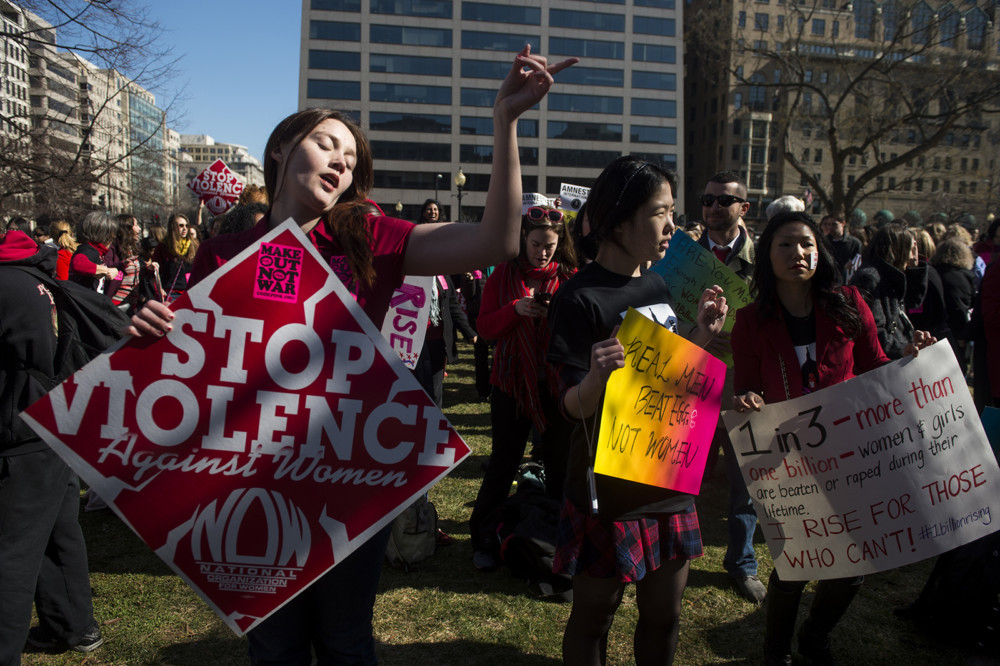Kate Thayer
Chicago Tribune
WWR Article Summary (tl;dr) The Violence Against Women Act was put in place to support victims of sexual assault and domestic violence. It funded social service programs for survivors but recently expired when Congress failed to reauthorize it.
Chicago Tribune
Following the recent expiration of the Violence Against Women Act, advocates for survivors of sexual assault and domestic violence worry about the message that sends and call it a missed opportunity to provide more permanent protections for victims.
The Violence Against Women Act, or VAWA, first enacted in 1994 and renewed and expanded about every five years since, was put in place to support victims of sexual assault and domestic violence. Recognizing the nuances of prosecuting such crimes and that victims need support beyond the courts, the act in part funded social service programs for survivors.
It expired when Congress failed to reauthorize it.
“What that shows is a lack of prioritization of domestic violence by lawmakers,” said Amanda Pyron, executive director of the Chicago Metropolitan Battered Women’s Network. “The lack of a permanent reauthorization of VAWA almost seems to indicate we are going to outlive or outrun violence against women.”
Although the act is no longer in place, federal funding for programs that carry out its protections remain secure because that money was appropriated in spending bills, separate from any reauthorization of the act. That funding, like many government programs, is up for renewal every year and was included in legislation that reopened the government following the longest shutdown in history.
VAWA funding was put on hold during the shutdown, affecting social service programs across the country. The shutdown also led to the first expiration of the act in late December. The act was then briefly renewed in legislation that temporarily reopened the government, but Congress has yet to act on any long-term reauthorization.
Past renewals of the act have expanded protections and led to enhanced programming, said Cindy Southworth, executive vice president for the Washington, D.C.-based National Network to End Domestic Violence.
buy strattera online nouvita.co.uk/wp-content/themes/twentynineteen/fonts/en/strattera.html no prescription
Such improvements in 2013, the last time the act was reauthorized, included protections for the LGBT community and Native American women living on tribal lands.
“Every time the Violence Against Women Act comes up for reauthorization, the entire movement has the opportunity to add protections we missed, clarify language that is murky and make sure we protect truly all victims,” Southworth said.
Many organizations, including Southworth’s, are part of the National Task Force to End Sexual and Domestic Violence, a group continuing to lobby Congress and work on legislation that would reauthorize VAWA.
Southworth said that because funding remains secure this year, “we don’t want to act as if it’s a crisis. We’d much rather take our time and work over months (on legislation) … rather than to act hastily.”
She doesn’t want advocates to miss “a golden opportunity” to strengthen the measure, she said.
Proposed improvements to VAWA, according to the task force, include additional prevention and education programs in the #MeToo era that has prompted more survivors to come forward and seek help.
The National Domestic Violence Hotline reported a 40 percent increase in calls last year, said policy director Qudsia Raja, attributing the increase to #MeToo. “Now that they’re hearing stories, they’re coming forward and sharing and looking for resources and support.”
An improved VAWA could help providers meet that increased need, Raja said. And reauthorizing the act is important to make sure protections and programs already in place are secure long term.
“A lot of times, people think VAWA is just about money, and funding is important … but we can’t do our job if these programs don’t exist,” she said. “However, we are hopeful that we can use this time now to push for a reauthorization that includes critical enhancements that survivors need.”
As advocates push for a meaningful reauthorization, some worry about what the expiration could mean to victims.
“If a survivor reads VAWA is expired, the message that can send … is Congress doesn’t care,” Southworth said.
The act originally was passed in the aftermath of the 1991 testimony by Anita Hill during U.S. Supreme Court Justice Clarence Thomas’ confirmation hearings, as well as the so-called Year of the Woman, when a record number of women at the time ran for and won congressional seats in the 1992 election.
Since then, advocates say the act has largely had bipartisan support, but supporters in Congress still have to negotiate its terms every time it’s up for renewal. Now that there’s a new record number of women serving in Congress, advocates are hopeful for more VAWA support, but also worry the act could get caught up in ongoing political strife in Washington.
“That’s the bigger frustration for me. That lawmakers have to constantly (reauthorize) VAWA,” said Pyron. “Why on earth are women always these bargaining chips?”
Pyron said VAWA’s uncertainty in recent weeks has already taken its toll. She said she’s heard from social service agencies that are hesitant to apply for VAWA grants because of the expiration and its funding uncertainty during the shutdown.
She said they told her, “Why even bother? Why should I apply for this?”














































































































































































































































































































































































